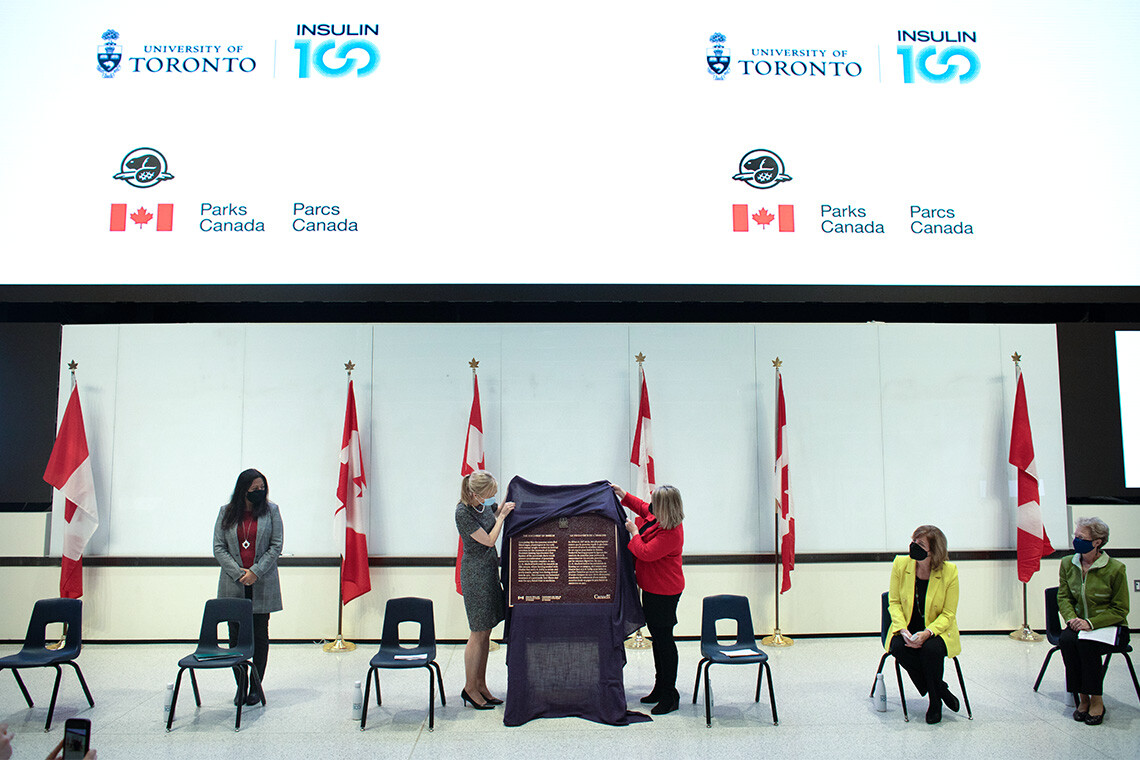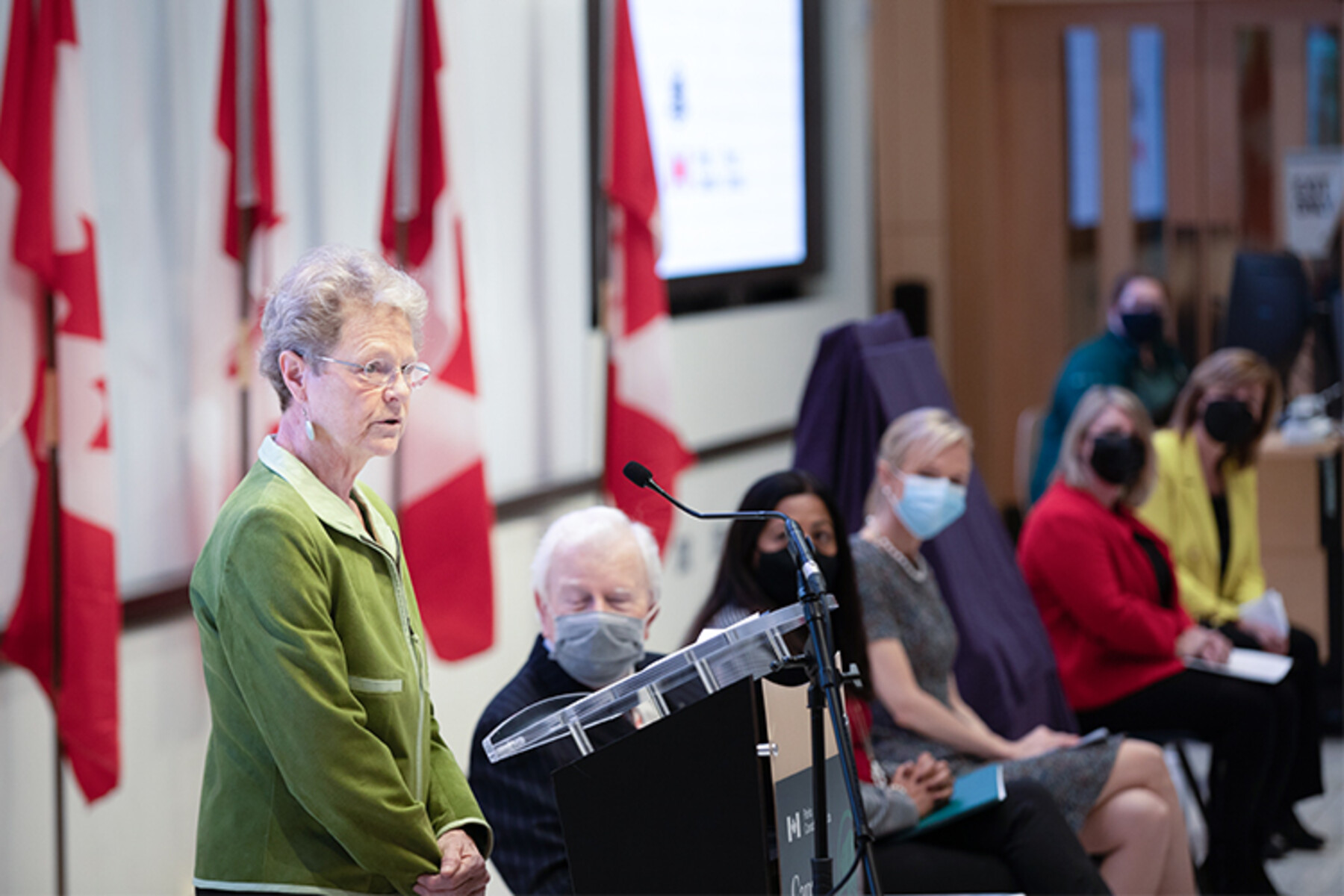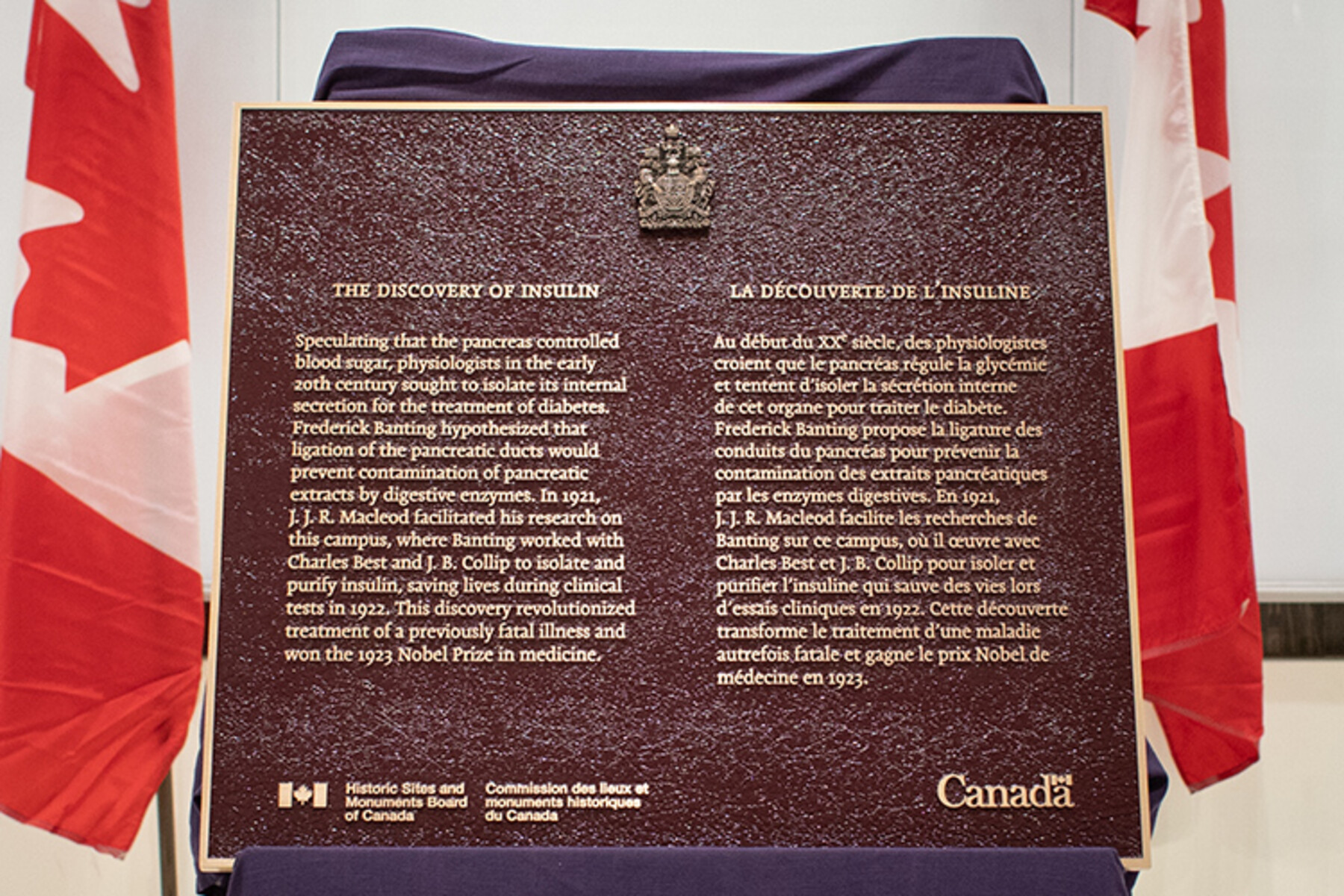Main Second Level Navigation
Nov 12, 2021
Insulin 100: Parks Canada Unveils Commemorative Bronze Plaque at U of T
Research, Partnerships

Photo by Johnny Guatto
Christine Allen, U of T’s associate vice-president and vice-provost, strategic initiatives, and Christine Loth-Brown, vice-president, Indigenous Affairs and Cultural Heritage, Parks Canada, unveil the plaque




